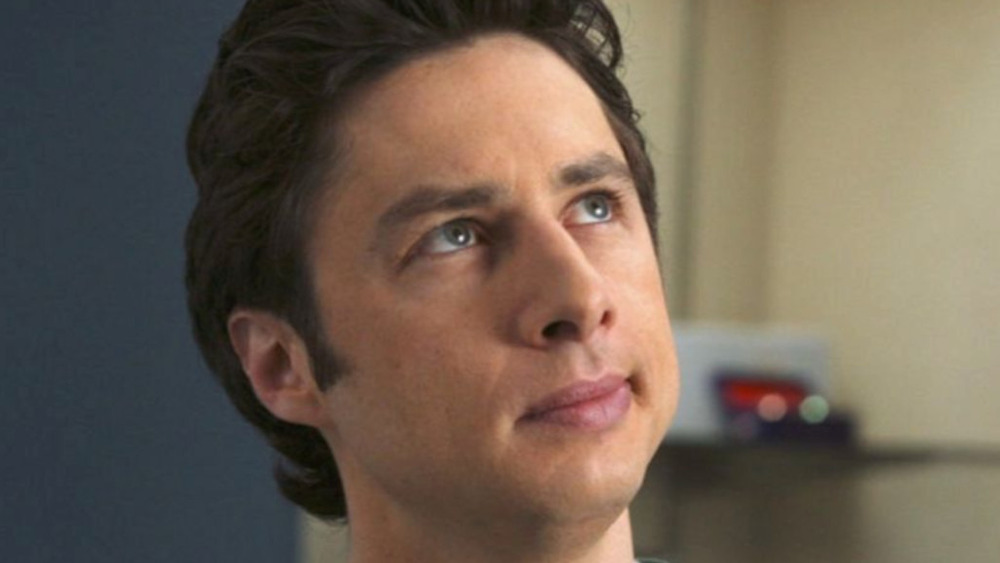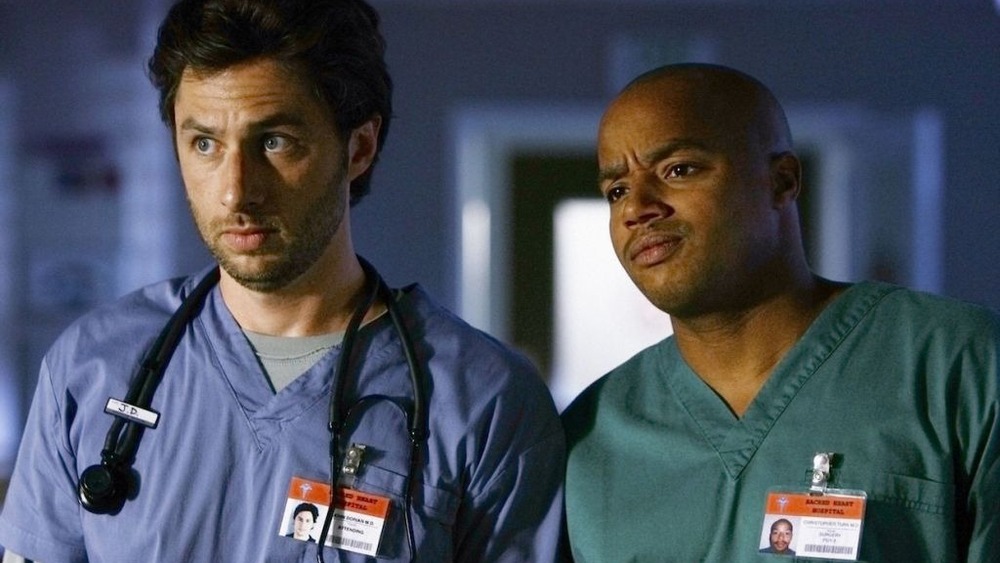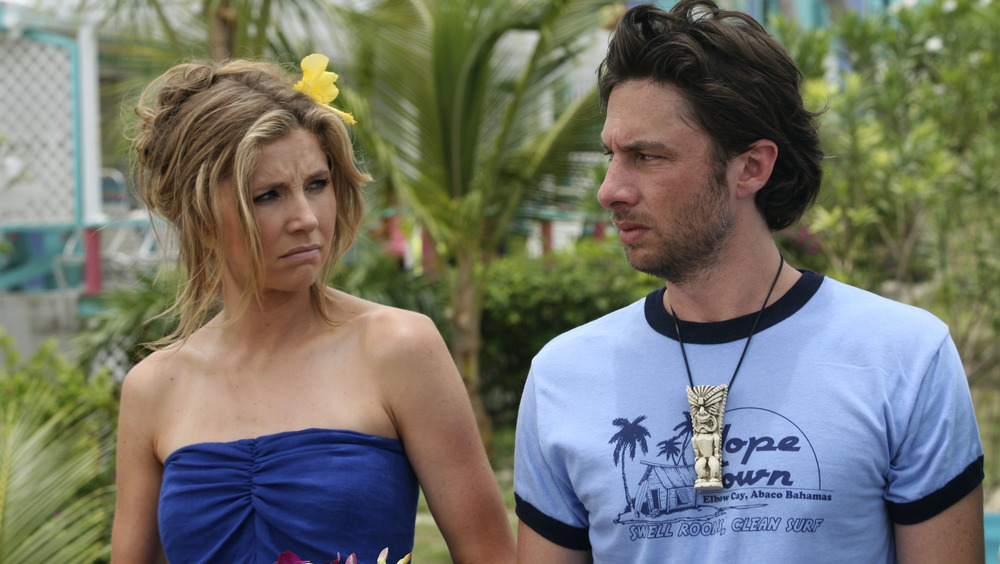What Scrubs Gets Right About Working In A Hospital
The sitcom Scrubs always aims for laughs. The popular TV series, which ran for seven seasons from 2001 to 2010 on NBC and one final season on ABC, made its name as a comedy series before anything else. Scrubs stars Dr. John Dorian (aka J.D.), played by Zach Braff, and his coworkers as they engage in antics and adventures during his first job as a doctor at Sacred Heart Hospital, a teaching hospital.
The show often dabbles in slapstick and absurdity, and most episodes are told from J.D.'s point of view via voiceover narration. Its jokes frequently involve or focus on J.D.'s ridiculous fantasies, which allows the show to routinely forgo realism for the sake of comedy. At any point, a conversation or event might slip into a daydream as J.D.'s overactive mind begins to wander. Despite the show's penchant for comedy, however, it became widely known as one of television's most factually accurate hospital dramas.
The medical side of Scrubs
Despite its absurd style of comedy, Scrubs has a reputation for getting its facts straight. As Insider reported, a group of doctors judging different medical dramas gave the show a combined average rating of 8/10 in terms of medical accuracy, second only to House. However, the comparison between the two shows might be moot. Scrubs tackles a very different side of what it is to be a doctor, focusing on the humor to balance the often-grim realities of life as a physician. Also, the young medical staffers of Sacred Heart almost never take on the kind of miracle cases that Dr. House specializes in.
But the Scrubs writing team definitely did their research. According to Slate, show creator Bill Lawrence would task his writers with interviewing five doctors on a yearly basis for material. On top of that, Lawrence enlisted Dr. Jonathan Doris, an old college pal, to be the show's medical advisor. As a result, Scrubs does a great job of portraying medicine realistically. However, doctors generally consider Scrubs even more accurate for its portrayal of the emotional side of the profession.
The emotional side of Scrubs
Bill Lawrence's writing team didn't use those interviews just to learn textbook medicine. They based Scrubs' characters and stories on the experiences of each and every doctor. It's no coincidence that J.D. bears the same initials as the show's medical advisor. As a result, the show's characters feel, think, and act like actual doctors.
The YouTube channel Dr. Hope's Sick Notes — hosted by British doctor Ed Hope — reacts to Scrubs in several videos and praises the show for its accurate portrayal of a doctor's everyday life. "I was so super impressed with how the writers really get under the skin and root the story in reality," he says. "The experiences and the relationships and the things that happen. That is what is exactly like real life."
It's likely that this also played a big part in Scrubs' success. Whether you're a doctor or not, those realistic experiences and relationships are relatable on a universal level. They humanize the show's characters and allow them the opportunity to develop as the series goes on. Beyond being medically accurate, the strength of Scrubs lies in its ability to tell real, human stories.


